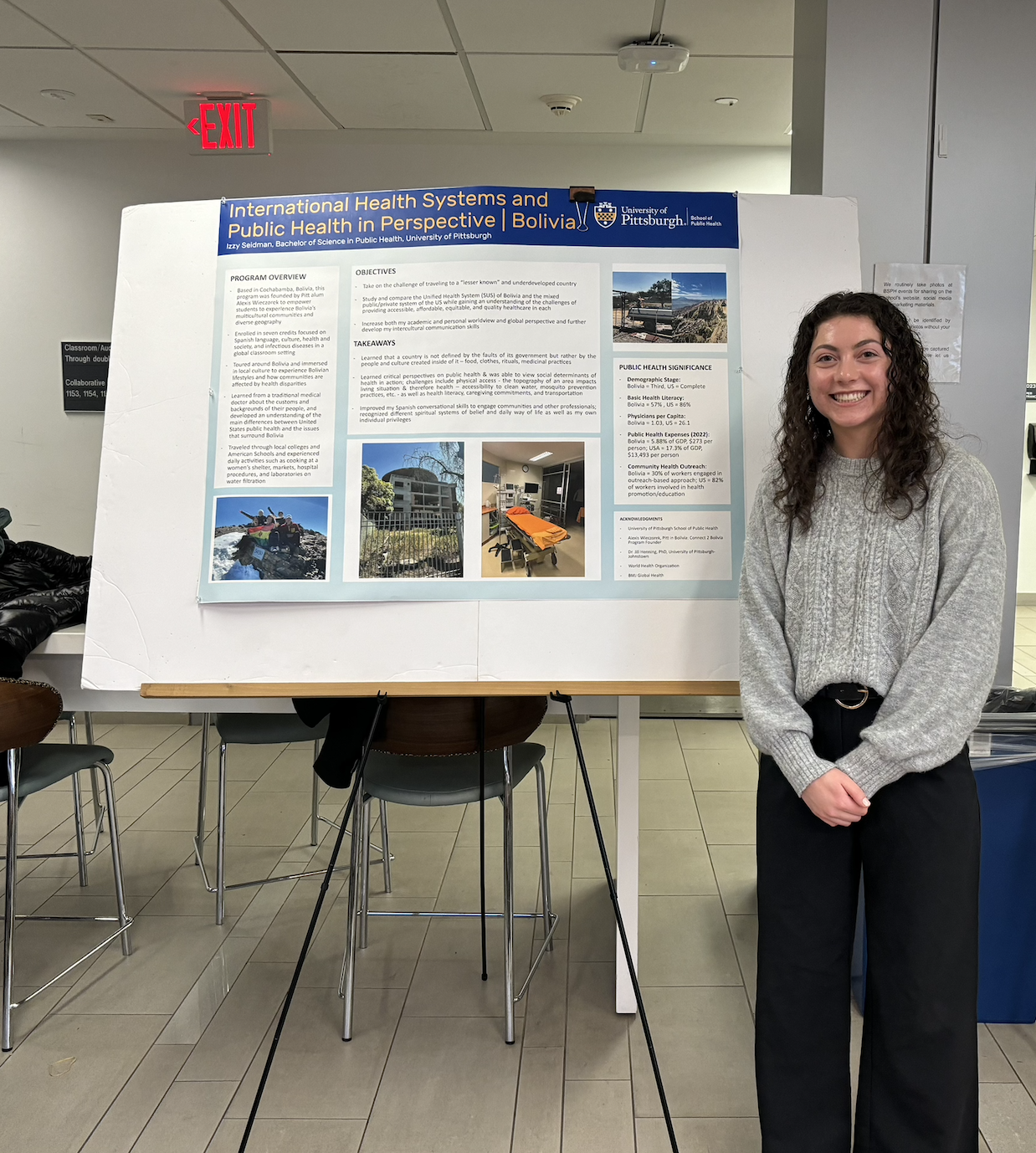Fresh off her graduation from the University of Pittsburgh with a Bachelor of Science in Public Health (BSPH), 22-year-old Izzy Seidman is already gearing up for her next adventure—this time, overseas as a medical officer in the U.S. Army.
But this path wasn’t always her plan.
Seidman started at Pitt as a biological sciences major, planning to pursue a career in medicine or health care. She was even accepted into Pitt’s accelerated 4+1 program to earn her bachelor’s and Master of Public Health. But after a year in crowded lecture halls, she realized it wasn’t the right fit.
“I just, honestly, really wasn't happy as a bio major,” she says. “I wanted a smaller class size and a more intimate classroom experience.”
In 2023, she made the switch to the BSPH program—and never looked back. “Public health was definitely more in my interest realm,” Seidman says. “I've always been a strong science kid—but I wanted to work with people, not in a lab.”

Her decision was also shaped by her involvement in the Army ROTC. Because of contract limitations, she wasn’t able to pursue both degrees simultaneously, so the bachelor’s in public health became the right move.
Growing up in Auburn, Alabama, Seidman was interested in medicine, but a teacher in high school introduced her to public health as a broader, community-focused option. “That’s when I started doing research and learning more, how it’s about taking care of everyone—not just treating illness.”
This same sense of purpose helped her thrive in ROTC, where she was part of the Three Rivers Battalion—a program that includes students from 12 Pittsburgh-area universities.
Between her junior and senior years, Seidman completed cadet training at Fort Knox, Kentucky, living with 35 people she’d never met. “I can work with anyone at this point,” she laughs. “I've grown in so many ways from ROTC. My confidence has soared, and I could not imagine my college experience without it.”
The medical service corps was always her goal. Now assigned to Korea, she’ll be responsible for tracking medical readiness, setting up clinics and managing supplies. “The Army is a people business—and so is public health,” she says.
Her time at Pitt prepared her in practical ways. “All the service-learning hours, the community health classes, the hands-on work—it’s all helped me build people skills and prepare for this role.”
Seidman works part-time as a patient care technician at UPMC Presbyterian, gaining real-world experience while setting her sights on becoming a physician assistant through the Army’s Interservice Physician Assistant Program.
“I’ve always wanted a job where I can travel overseas and help people,” she says. “I’d love to be part of a forward surgical team or work in a field hospital one day.”
No matter where her path leads, her advisor Kristin Amos-Abanyie is confident she’ll thrive. “It’s been an absolute joy to work with Izzy. She’s deeply motivated, has a strong sense of purpose, and is always eager to help others. Watching her grow into a confident leader has been incredibly rewarding.”
As she steps into this next chapter, Seidman hopes other students see how many opportunities a public health degree can offer. “I’m just excited to see where it leads,” she says.
-Clare Collins